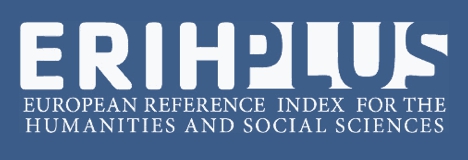On the trails of environmental education: for a renewed relationship with mangrove ecosystems
Abstract
The environmental problems result from a synergy originated in the inconformity of the multiple socioenvironmental interactions compounding the global environment because of human activities. This work transits through varied knowledge linked to the environmental dimension, relating them to the importance of natural systems conservation on maintaining the global environmental quality, boarding mangroves as an example, and the mangrove ecosystem in the Environmental Protection Area (EPA) of the Ceará River Estuary as a case study. The EPA, located on the boundaries of the cities of Fortaleza and Caucaia/CE, houses a mangrove ecosystem under strong pressure resulting from human activities; Mangroves respond for several environmental functions and services; fact, per se, justifiable for environmental protection. So, it is suggested the Environmental Education (EE) in order to trail the multiple environmental dimensions in its interactions; acknowledging its mediator and uniting finality concerning varied knowledge in the scope of socio-environmental justice.
References
Ceará. In: Geosaberes, v.3, n.6, p. 60-70. Dez/2012. Universidade Federal do Ceará – UFC. Fortaleza,
2012.
ANDRADE, J. A. P. Degradação e educação ambiental na APA do estuário do rio Ceará.
Monografia (Especialização) – Universidade Estadual do Ceará, Centro de Ciências e Tecnologia, Curso
de Especialização em Educação ambiental, Fortaleza, 2011.
CAPRA, F. A Teia da Vida: uma nova compreensão cientifica dos sistemas vivos. São Paulo: Ed
Cultrix, 1997.
CEARÁ. Secretaria do Meio Ambiente do Ceará. Decreto Lei nº 25.413 de 29 de março de 1999.
Fortaleza: Assembleia Legislativa do Estado do Ceará, 1999.
COELHO JUNIOR, C. e SCHAEFFER-NOVELLI, Y. Considerações teóricas e práticas sobre o impacto
da carcinicultura nos ecossistemas costeiros brasileiros, com ênfase no ecossistema manguezal. In:
Proceeding of Mangrove. International society for Mangrove Ecosystems - Mangrove. Recife: s/e, 2000.
DUARTE, F.P. “Save the Earth” or “Manage the Earth”? The politics of environmental globality in high
modernity. CurrentSociology. 49 (1): p. 91-111, 2001.
GARRISON, T. Fundamentos de Oceanografia. São Paulo: Cengage Learning, 2010.
FAO. The World’s Mangroves (1980 – 2005). Food and Agriculture Organization of the United Nations
Forestry Paper - 153. Roma, 2007. Disponível em www.fao.org/forestry/mangroves. Acesso em 12 de
Abr. 2015.
FIGUEIREDO, J. B. A. Educação Ambiental Dialógica: As contribuições de Paulo Freire e a cultura
sertaneja nordestina. Fortaleza: Edições UFC, 2007.
IUCN. Managing protected areas in the tropics.1986. Disponível em:
https://portals.iucn.org/library/node/5839. Acesso em 27 de Jul. 2015.
LACERDA, L. D. Manguezais, Ecossistemas-chave sob Ameaça, Revista Scientific American Brasil –
Mudanças Climáticas e Desafios Ambientais. São Paulo: Duetto 2009. (Coleção Oceanos – origens,
transformações e o futuro; v.1)
LAYRARGUES, P. P. Educação para a gestão ambiental: a cidadania no enfrentamento político dos
conflitos socioambientais. In: LOUREIRO, Carlos Frederico Bernardo; LAYRARGUES, Philippe
Pomier;CASTRO, Ronaldo Souza de (orgs.). Sociedade e meio ambiente: a educação ambiental em
debate. São Paulo: Cortez, 7ª ed. 2012.
LOUREIRO, C. F. B. Trajetória e Fundamentos da Educação Ambiental. São Paulo: Cortez, 2004.
LOUREIRO. C. V. A vulnerabilidade como indicador de qualidade ambiental em área do baixo
curso dos rios Maranguapinho e Ceará – CE: subsídios para o zoneamento ambiental. Dissertação de
Mestrado (Programa de Pós-graduação em Geografia da Universidade Federal do Ceará). Fortaleza, UFC,
2011.
MATOS, F. O. Formação e limitações regionais do plano de desenvolvimento sustentável da região
turística do Meio-norte (Brasil). 2013. Tese de Doutorado (Programa de Pós-graduação em Geografia
da Universidade Federal do Ceará). Fortaleza, UFC, 2013.
MENDONÇA JÚNIOR, M.S. Ecologia e Educação Ambiental: Temas para um diálogo Conceitual.
In:LISBOA, C.P.; KINDEL, E.A.I. (orgs.). Educação Ambiental: da teoria à prática. Porto Alegre:
Mediação, 2012
, p. 37-52
MEIRELES, G. et al. Plano de Gestão Integrada da Orla Marítima de Fortaleza: Projeto Orla.
Fortaleza: PMF, 2006.
NILIN, J. et al. Water Toxicity Assessment of Ceará River Estuary (Brazil). In: J. Braz. Soc.
Ecotoxicol. V.2, n.2, 2007. Disponível em:
ODUM, E. P.; BARRET, G. W. Fundamentos de Ecologia. São Paulo: Thomson, 2007.
PEDRINI, A.G. et al. Metodologias em Educação Ambiental para a Conservação Socioambiental dos
Ecossistemas Marinhos. In: Pedrini, A.G.; SAITO, C.H. (orgs.). Paradigmas Metodológicos em
Educação Ambiental. Rio de Janeiro: Vozes,2014, p. 132-151.
REIGOTA, M. O que é Educação Ambiental. São Paulo: Brasiliense, 2004.
REZENDE, E. R. et al. Ecologia e Biogeoquímica de Manguezal. In: PEREIRA, R. C.; SOARESGOMES, A. (orgs.). Biologia Marinha. Rio de Janeiro: Interciência, 2009, p. 361-382.
SATO, M.; CARVALHO, I. Educação Ambiental. Pesquisa e Desafios. Porto Alegre: Artmed, 2005.
SAUVÉ, L. Uma cartografia das correntes em educação ambiental. In: SATO, M; CARVALHO, I.
Educação Ambiental: Pesquisa e desafio. Porto Alegre: Artmed, 2005, p. 17-44.
SCHMIEGELOW, J. M. M. O Planeta Azul: Uma Introdução às Ciências Marinhas. Rio de Janeiro:
Interciência, 2004.
SEN, A. Sobre Ética e Economia. São Paulo: Companhia das Letras, 1999.
UNESCO. UNESCO and Sustainable Development. Paris, 2005. Disponível em:
VANNUCI, M. What is so special about mangroves? Brazilian Journal of Biology, São Carlos, v. 61, n.
4, Nov, 2001. Disponível em:
Ago. 2015.
WILSON, E. O. Diversidade da Vida. São Paulo: Companhia das Letras, 1994.
Keywords
Policy Proposal for Free Access Journals
Authors who publish in this journal agree to the following terms:
a. Authors retain the copyright and grant the journal the right of first publication, with the work simultaneously licensed under the Creative Commons Attribution License which allows the sharing of the work with acknowledgment of the authorship of the work and initial publication in this journal.
b. Authors are authorized to take additional contracts separately, for non-exclusive distribution of the version of the work published in this journal (eg publish in institutional repository or as a book chapter), with acknowledgment of authorship and initial publication in this journal.
c. Authors are allowed and encouraged to publish and distribute their work online (eg in institutional repositories or on their personal page) at any point before or during the editorial process, as this can generate productive changes, as well as increase the impact and The citation of published work (See The Effect of Free Access).





















